Research
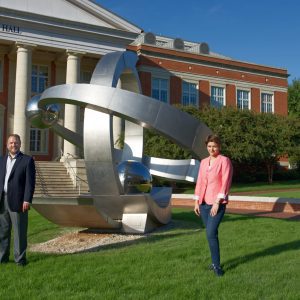
Optical Science and Engineering Doctoral Student Named Winner In North American Optical Design Competition
Optical Science and Engineering doctoral student Shohreh Shadalou is one of five award winners in Synopsys’ 2020 Robert S. Hilbert Memorial Optical Design Competition. Shadalou competed against graduate and undergraduate students from across North America.
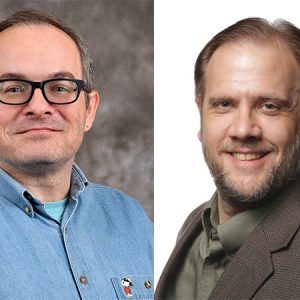
Physics and Optical Science Professors Named OSA Fellows For Distinguished Contributions To The Field
UNC Charlotte Physics and Optical Science professors Gregory Gbur and Thomas Suleski are named 2021 Fellows by the Optical Society Board of Directors. OSA Fellows are recognized for advancing the fields of optics and photonics through distinguished contributions to education, research, engineering, business and society.
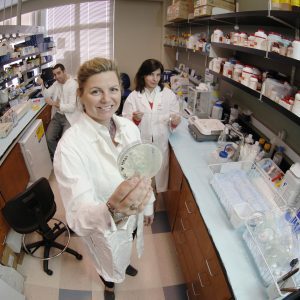
New Biomedical, Biotechnology Graduate Certificates Add Exciting Choices
The Department of Biological Sciences has developed graduate certificates in biomedical sciences and in biotechnology, in response to growing student and societal needs. The world’s critical needs continue to drive the demand for biotechnology and biomedical professionals.
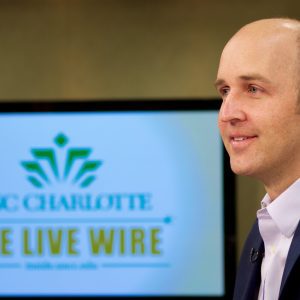
Scientists, Citizens Consider Impact On Environment Of COVID-19 Slowdowns
Scientists and citizens are thinking about how slowdowns and shutdowns from COVID-19 might be helping the environment. Among those exploring this issue is UNC Charlotte atmospheric scientist Brian Magi, who is part of a local and global network of researchers who consider air quality and climate.
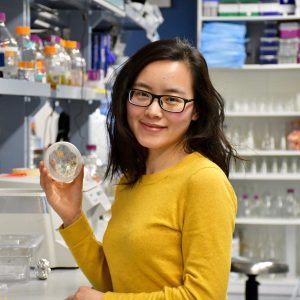
New Research Could Help Address Threats To Reefs
Corals depend on their symbiotic relationships with the algae that they host. New insights into this important process, in a study by UNC Charlotte’s Tingting Xiang and colleagues, could offer clues to helping reefs survive.

Biology Doctoral Student Addresses World’s Food Scarcity Through Wild Soybean Research
As biology doctoral student Farida Yasmin advances her research into the wild soybean and its potential to address worldwide food scarcity, she continues to grow her impact and her knowledge. The wild soybean provides half the world’s vegetable oils and proteins but is susceptible to a devastating pest that Yasmin is addressing through cutting-edge omics technology.

CLAS Doctoral Students Take Top Spots in 3MT Contest
Three College of Liberal Arts & Sciences graduate students earned the first, second and third-place places at UNC Charlotte’s Three Minute Thesis (3MT) competition.
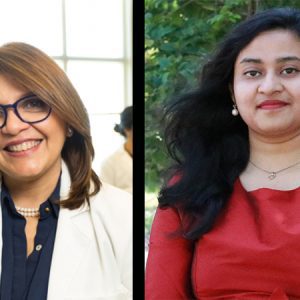
Researchers Propose Important Link Between Microbial Infections and Cancers
In a review article appearing in the November 18, 2019 issue of Trends in Molecular Medicine, University of North Carolina at Charlotte cancer biologists Pinku Mukherjee and Mukulika Bose discuss a mechanism that, they suggest, may implicate bacterial infections in a wide variety of cancers. This is a cause that science has yet to fully understand.

Doctoral Student Forms Bonds Through Chemistry, Dance
Margaret Kocherga’s story is one of a young scientist and artist who is making connections and encouraging others; discovering and sharing knowledge; and keeping a sharp eye on a dizzying array of daily tasks. Along with her research, Kocherga makes time to engage the community in science, and to also dance and teach dance.
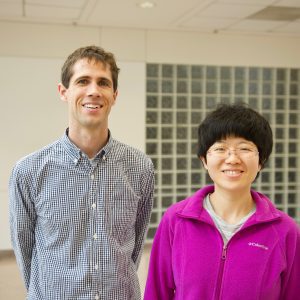
Mathematics and Statistics Faculty Earn Coveted NSF CAREER Awards
Two faculty members in the Department of Mathematics and Statistics, Xingjie (Helen) Li and Kevin McGoff, have each received a Faculty Early Career Development (CAREER) award from the National Science Foundation. CAREER awards are among the most prestigious in support of early-career faculty.